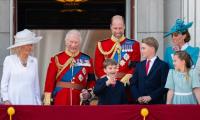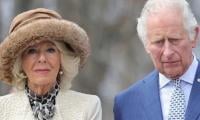After the elections
Afghanistan will be entering a new phase today when elections are held to find a replacement for Pre
By Ayaz Wazir
April 05, 2014
Afghanistan will be entering a new phase today when elections are held to find a replacement for President Karzai who cannot contest for a third term in office as per the constitution. Soon the country will also say goodbye to the American troops that are supposed to leave Afghanistan this year, as pledged by Obama.
Whether these two events bring peace to Afghanistan or not only time will tell but when we look at the ground realities we find that nothing concrete has been done for reconciliation between the Taliban and the government in Kabul which is a prerequisite for peace in the country.
The US has made more futile efforts towards getting the Bilateral Security Agreement signed by President Karzai than bringing about reconciliation between the Taliban and Kabul. Matters have reached a point where the Americans have been contemplating that if they cannot leave some force behind for continuity of the system they installed, through the BSA, they may well have to opt for the zero option – pulling out all forces from Afghanistan. Their failure to cobble together some kind of dispensation to take charge at the drawdown of foreign forces leaves one with a feeling of foreboding for the poor Afghan in post-2014 Afghanistan.
The three frontrunners in the Afghan election, Dr Zalmay Rasool, Dr Ashraf Ghani and Dr Abdullah Abdullah, have made it clear that they will have no hesitation in signing the BSA as they consider it to be in the best interest of the Afghan nation. Whether that situation arrives or not depends of the final outcome of the election. Meanwhile the possibility of disruption by the Taliban or their deal with the government for future dispensation cannot be ruled out either. The coming few weeks are thus crucial for a positive change within Afghanistan and the region.
Prime Minister Nawaz Sharif, realising that a peaceful Afghanistan is in the best interests of Pakistan, appears keen at least on a political level to contribute in whatever way he can to bring peace to that country. He would like to use his influence with the Taliban to enter into negotiations with the government in Kabul to work out a common ground for a future dispensation. Whether he can succeed in doing that without the support of his military establishment and whether the forces that oppose Pakistan within the Afghan setup allow him to play any worthwhile role is something that cannot be predicted with certainty. Nevertheless it can be safely said that events will move swiftly in Afghanistan after the elections.
In this context one must not forget an important factor – the trust deficit between the governments of Afghanistan and Pakistan. Despite the fact that occasional announcements are made of refraining from accusing each other of cross-border violations so far no serious efforts seem to have been made regarding that.
Many believe that Gen Musharraf’s wrong policies on Afghanistan embroiled Pakistan in the war of terror which in turn stoked the fires of militancy in the country. The first step towards extinguishing this fire would be to ensure that Pakistan’s soil is not used for activities across the western border. Similarly the leadership that emerges from the forthcoming elections in Afghanistan should also take steps to bridge the gap that exists between the two countries and work with Nawaz Sharif for peace and stability in the region.
Those participating in the electoral process are hoping for a peaceful transition from Karzai to his elected successor. Although the Taliban have threatened to disrupt the elections the contenders hope the process will not be marred by violence, or that it will be contained and not be too widespread. Similarly December 2014 is not that far away; foreign forces will, hopefully, end the occupation of Afghanistan. But whether these events take place smoothly and in time is a question that bothers those concerned with restoration of peace in that country.
President Karzai has so far tried his level best to lure the Taliban into negotiating with his government but they have always rejected his advances. However, lately some reports are emerging that talks, direct or indirect, are quietly taking place which indicates that the two have realised that neither one can govern Afghanistan in peace without the participation of the other.
There are still many pitfalls in the process but the best way would be if Islamabad and Washington were to join hands for finding a way to bring the two warring factions (Taliban and the Karzai government) to the negotiating table for a durable solution to the problems of that country. That will not only make Afghanistan safe in the longer term but will also help safe exit of the foreign forces from there during the process of withdrawal. It would also bring an end to the so-called war on terror and its consequences in the tribal areas of Pakistan.
The writer is a former ambassador.
Email: waziruk@hotmail.com
Whether these two events bring peace to Afghanistan or not only time will tell but when we look at the ground realities we find that nothing concrete has been done for reconciliation between the Taliban and the government in Kabul which is a prerequisite for peace in the country.
The US has made more futile efforts towards getting the Bilateral Security Agreement signed by President Karzai than bringing about reconciliation between the Taliban and Kabul. Matters have reached a point where the Americans have been contemplating that if they cannot leave some force behind for continuity of the system they installed, through the BSA, they may well have to opt for the zero option – pulling out all forces from Afghanistan. Their failure to cobble together some kind of dispensation to take charge at the drawdown of foreign forces leaves one with a feeling of foreboding for the poor Afghan in post-2014 Afghanistan.
The three frontrunners in the Afghan election, Dr Zalmay Rasool, Dr Ashraf Ghani and Dr Abdullah Abdullah, have made it clear that they will have no hesitation in signing the BSA as they consider it to be in the best interest of the Afghan nation. Whether that situation arrives or not depends of the final outcome of the election. Meanwhile the possibility of disruption by the Taliban or their deal with the government for future dispensation cannot be ruled out either. The coming few weeks are thus crucial for a positive change within Afghanistan and the region.
Prime Minister Nawaz Sharif, realising that a peaceful Afghanistan is in the best interests of Pakistan, appears keen at least on a political level to contribute in whatever way he can to bring peace to that country. He would like to use his influence with the Taliban to enter into negotiations with the government in Kabul to work out a common ground for a future dispensation. Whether he can succeed in doing that without the support of his military establishment and whether the forces that oppose Pakistan within the Afghan setup allow him to play any worthwhile role is something that cannot be predicted with certainty. Nevertheless it can be safely said that events will move swiftly in Afghanistan after the elections.
In this context one must not forget an important factor – the trust deficit between the governments of Afghanistan and Pakistan. Despite the fact that occasional announcements are made of refraining from accusing each other of cross-border violations so far no serious efforts seem to have been made regarding that.
Many believe that Gen Musharraf’s wrong policies on Afghanistan embroiled Pakistan in the war of terror which in turn stoked the fires of militancy in the country. The first step towards extinguishing this fire would be to ensure that Pakistan’s soil is not used for activities across the western border. Similarly the leadership that emerges from the forthcoming elections in Afghanistan should also take steps to bridge the gap that exists between the two countries and work with Nawaz Sharif for peace and stability in the region.
Those participating in the electoral process are hoping for a peaceful transition from Karzai to his elected successor. Although the Taliban have threatened to disrupt the elections the contenders hope the process will not be marred by violence, or that it will be contained and not be too widespread. Similarly December 2014 is not that far away; foreign forces will, hopefully, end the occupation of Afghanistan. But whether these events take place smoothly and in time is a question that bothers those concerned with restoration of peace in that country.
President Karzai has so far tried his level best to lure the Taliban into negotiating with his government but they have always rejected his advances. However, lately some reports are emerging that talks, direct or indirect, are quietly taking place which indicates that the two have realised that neither one can govern Afghanistan in peace without the participation of the other.
There are still many pitfalls in the process but the best way would be if Islamabad and Washington were to join hands for finding a way to bring the two warring factions (Taliban and the Karzai government) to the negotiating table for a durable solution to the problems of that country. That will not only make Afghanistan safe in the longer term but will also help safe exit of the foreign forces from there during the process of withdrawal. It would also bring an end to the so-called war on terror and its consequences in the tribal areas of Pakistan.
The writer is a former ambassador.
Email: waziruk@hotmail.com
-
 Meghan Markle’s Family Shares Important News Amid Estrangement
Meghan Markle’s Family Shares Important News Amid Estrangement -
 BAFTA, BBC, And Tourette’s Advocate John Davidson Issue Formal Statements For His Onstage Slur
BAFTA, BBC, And Tourette’s Advocate John Davidson Issue Formal Statements For His Onstage Slur -
 Kanye West's Malibu Beachfront Mansion Enters Controversy Again As Ex-employee Seeks $1M In Alleged Unpaid Wages
Kanye West's Malibu Beachfront Mansion Enters Controversy Again As Ex-employee Seeks $1M In Alleged Unpaid Wages -
 Tom Hanks To Lead Experimental Biopic About Distant Relative Abraham Lincoln
Tom Hanks To Lead Experimental Biopic About Distant Relative Abraham Lincoln -
 'CIA' Starring Tom Ellis Promises Fresh Take Beyond FBI Franchise
'CIA' Starring Tom Ellis Promises Fresh Take Beyond FBI Franchise -
 Congressman Tony Gonzales Faces Resignation Calls Amid Investigation
Congressman Tony Gonzales Faces Resignation Calls Amid Investigation -
 Royal Family Not Allowed To Play THIS Fun Game: ‘It Gets Too Vicious’
Royal Family Not Allowed To Play THIS Fun Game: ‘It Gets Too Vicious’ -
 Heidi Klum Exposes Harsh Modeling Rule She Faced While Expecting
Heidi Klum Exposes Harsh Modeling Rule She Faced While Expecting -
 US Women’s Hockey Team Skips State Of The Union After Gold Medal Win
US Women’s Hockey Team Skips State Of The Union After Gold Medal Win -
 Toronto Weather Forecast: Snow Storm Advisory Lifted After Icy Conditions
Toronto Weather Forecast: Snow Storm Advisory Lifted After Icy Conditions -
 How ‘deafness’ In Andrew Scandal Has Changed Monarchy ‘forever’
How ‘deafness’ In Andrew Scandal Has Changed Monarchy ‘forever’ -
 Gisele Bundchen Drops Postpartum Workout Secret She Calls A 'game Changer'
Gisele Bundchen Drops Postpartum Workout Secret She Calls A 'game Changer' -
 1 In 5 Teens Exposed To Unwanted Sexual Content On Instagram, Report Finds
1 In 5 Teens Exposed To Unwanted Sexual Content On Instagram, Report Finds -
 US Judge Aileen Cannon Issues Permanent Order In Trump Documents Case
US Judge Aileen Cannon Issues Permanent Order In Trump Documents Case -
 King Charles, Royals Are Not ‘bright’ Enough To Live In Mansions
King Charles, Royals Are Not ‘bright’ Enough To Live In Mansions -
 'Final Throw Of The Dice': Paramount Submits Highest Bid Offer To Warner Bros. In Last Round
'Final Throw Of The Dice': Paramount Submits Highest Bid Offer To Warner Bros. In Last Round



